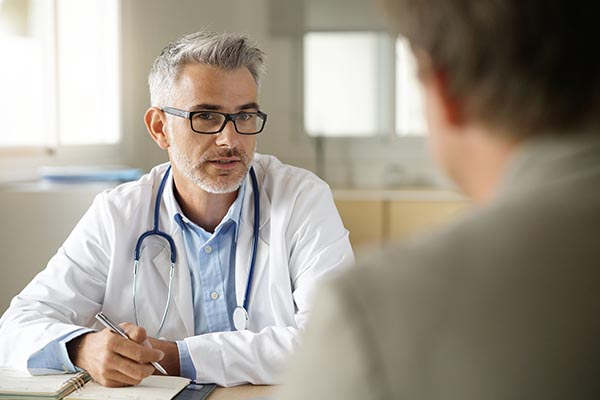A Hematologist-Oncologist Discusses Types of Blood Cancers

Consulting a hematologist-oncologist can educate you about the different types of blood cancers. Knowing more about these ailments can help you understand your condition better so you can be prepared for your possible treatments. Here are the details if you want to get the facts from a licensed hematologist-oncologist.
The essentials of blood cancer
A patient with blood cancer should learn everything about their condition. This can help guide them during current treatments and ease their mind about upcoming treatments. The attending hematologist-oncologist can also teach the patient about the possible treatment side effects.
Bone marrow produces blood. There are red blood cells, platelets, and white blood cells. Red blood cells remove carbon dioxide from and bring oxygen to the different parts of the body. Platelets can heal wounds and cuts by clotting in the injured areas.
White blood cells fight pathogens and infections. Through the antibodies from these cells, pathogens die off. The process of phagocytosis eats up the pathogens.
Most blood cancers start in the bone marrow. An abnormality in the production of blood cells may lead to blood cancer, which prevents blood from performing its normal functions.
The types of blood cancer
During the initial consultation, the hematologist-oncologist can explain the different types of blood cancer. The patient can ask relevant questions about each type. Understanding these can help the patient when they go through the treatments. Here are the details about the three main types of blood cancer.
Leukemia
This cancer affects the white blood cells. Abnormal growth of these cells keeps them from doing what they do. The hematologist-oncologist can determine the cancer’s behavior, which can be either chronic or acute.
Chronic leukemia is slow developing. Even so, it can still place a person’s life at high risk. Acute leukemia, conversely, is a rapid-growing blood cancer. This type of leukemia needs prompt medical attention. Here are the main types of leukemia:
- Chronic lymphocytic leukemia is common among people at least 60 years of age, and this is the most common type of leukemia
- Acute myelogenous leukemia is common among people at least 60 years old, though it may also affect younger age groups
- Chronic myelogenous leukemia often occurs in middle-aged adults
Myeloma
This disease is the abnormal growth of plasma cells. Myeloma disrupts the proper function of plasma cells, which is to produce antibodies. Therefore, the body becomes vulnerable to infections. This type of cancer happens in many sections of the bone marrow. That is why this cancer is also called multiple myeloma.
Lymphoma
Fluid drainage and immune cell production are the functions of the lymphatic system. When lymphoma occurs, there is an abnormal production of lymphocytes. A hematologist-oncologist can explain that abnormal lymphocytes do not function well. Instead, these cells become cancerous. Hodgkin and non-Hodgkin lymphomas are the two types of this blood cancer.
Other types of blood cancer
Waldenstrom macroglobulinemia is a rare non-Hodgkin lymphoma and often starts in the B cells. A hematologist-oncologist can explain what myeloproliferative neoplasms are. These are rare blood cancers and can happen when the body produces too many platelets, white blood cells, and red blood cells. Its three main types are polycythemia vera, essential thrombocythemia, and myelofibrosis.
The symptoms of blood cancer
A hematologist-oncologist will stress the importance of early blood cancer detection, as it may lead to a successful treatment. Early detection enables the doctor to see the symptoms and signs of cancer. It is also an opportunity to see if the patient is at risk for blood cancer. Here are the blood cancer symptoms to watch out for:
- Joint pains or aches can result from the gathering of cancer cells around the joints and bone surfaces
- Rashes, painful gums, or bleeding can occur because of the accumulation of cancer cells
- Recurring anemia indicates a low RBC count
- Swollen lymph nodes or lumps under the skin in the groin, underarms, neck, or collarbones should be checked out by a hematologist-oncologist
- An unusually swollen belly may indicate leukemia cells gathering in the liver or spleen
- Other symptoms may include chronic fatigue, fevers, infections, itchy skin, appetite loss, headaches, and weight loss
A hematologist-oncologist can help you understand each type of blood cancer
Learning everything about blood cancer types can help you prepare for the treatments. It can also help you understand how your life may change during your therapies. An experienced oncologist hematologist is the healthcare provider you need. Working with this healthcare professional can lead to a better prognosis.
Get more information about Lindenberg Cancer & Hematology Center in Marlton at https://lindenbergcancer.com.
Check out what others are saying about our services on Yelp: Hematologist-Oncologist in Marlton, NJ.
Recent Posts
Blood clot disorders include a spectrum of inherited or acquired conditions that disrupt healthy circulation, elevate the risk of blockage, and threaten vital organs. An oncologist frequently monitors patients for clotting complications because cancer, certain chemotherapies, and reduced mobility intensify thrombotic tendencies. Early recognition of warning signs, together with prompt intervention, significantly lowers the possibility…
Lung cancer treatment has advanced significantly in recent years, allowing for more personalized approaches that improve outcomes and reduce unnecessary side effects. Personalized lung cancer treatment plans are developed based on several factors, including the type and stage of cancer, genetic markers, overall health, and the patient's unique response to specific therapies. These tailored strategies…
An ovarian cancer diagnosis can be scary, as this form of cancer often develops without noticeable symptoms in the early stages. As the disease progresses, it can become more difficult to treat, making early awareness important. Knowing the signs, understanding the diagnostic process, and learning about treatment options from an oncologist can offer patients hope…
Gynecological cancer treatments target cancers that affect the female reproductive organs, such as ovarian, uterine, cervical, vaginal, and vulvar cancers. Fortunately, there have been significant medical advances in cancer treatment that have greatly improved patient outcomes, allowing oncologists to adjust therapies to fit each patient's needs and overall health. These targeted treatments work better than…


